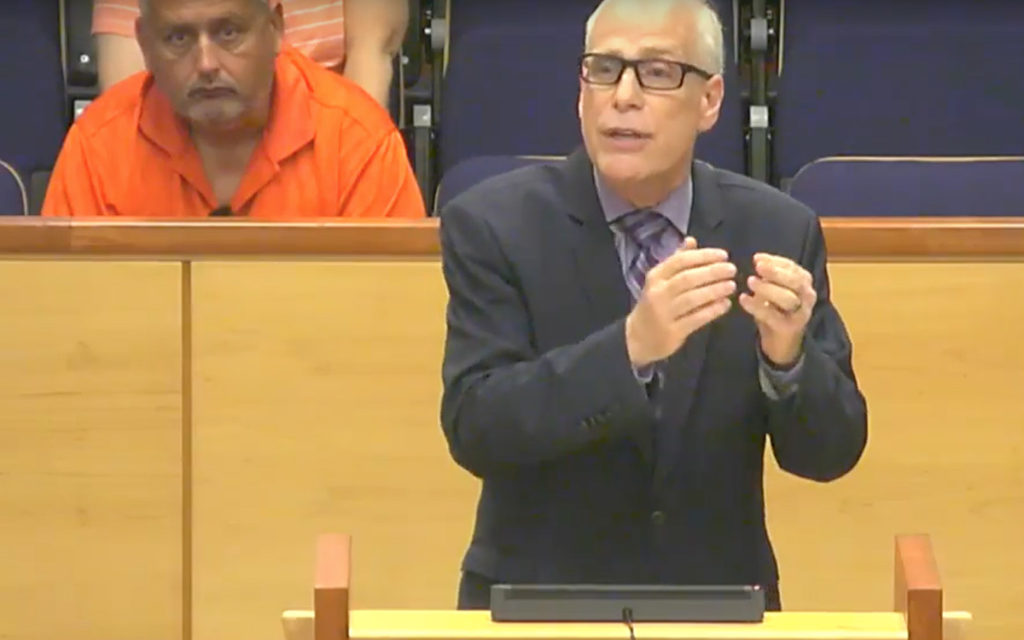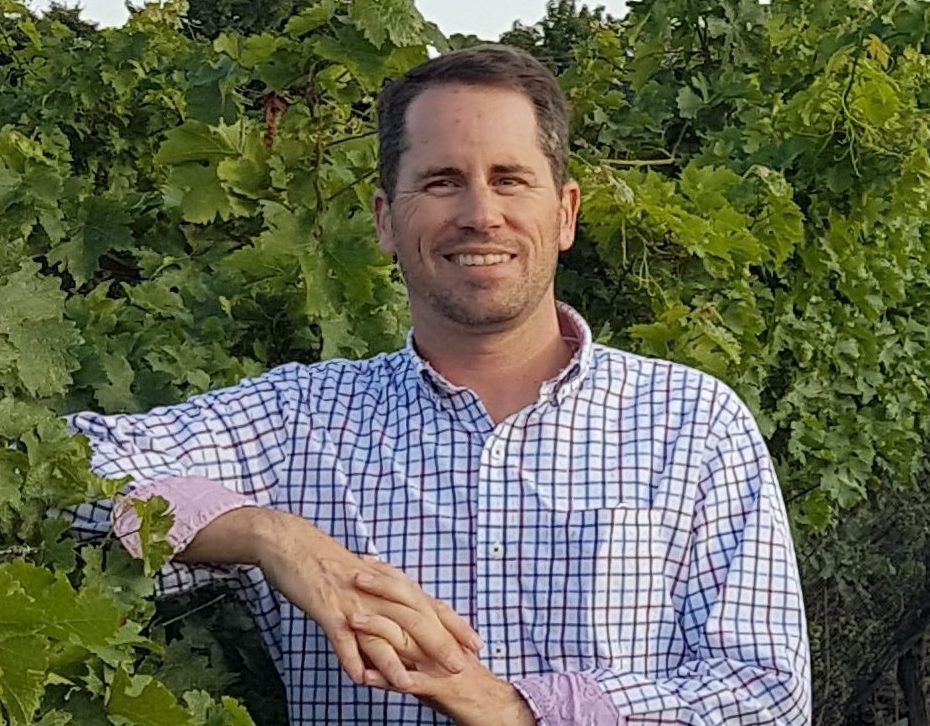
Municipal Ombudsman Marvin Huberman has cleared the hiring committee and staff of any wrongdoing with regard to the hiring of CAO Carmen D’Angelo
Rumour, gossip, innuendo, hearsay, misinformation, speculation and conjecture; Those were the words used by Municipal Ombudsman, Marvin Huberman, an independent third-party investigator and a lawyer with ADR Chambers, to describe the allegations of impropriety that were made with regard to the 2016 hiring of Niagara Region’s Chief Administrative Officer (CAO) Carmen D’Angelo.
In 2016 Regional Council struck a CAO Recruitment Committee to handle the search for and recommendation of a new CAO. They were assisted by The Phelps Group, an executive search firm with extensive experience in executive recruitment, particularly in government organizations. At a special Regional Council meeting held on October 21, 2016, Regional Council passed a motion that Carmen D’Angelo be appointed as the CAO for the Regional Municipality of Niagara. On October 31, 2016 Regional Chair Alan Caslin publicly announced the hiring of Carmen D’Angelo as the new CAO effective October 31, 2016.
In his 43-page report reviewing the process, Mr. Huberman clears the hiring committee and staff of any wrongdoing based on more than 200,000 documents he thoroughly reviewed and the 16 interviews he conducted with regard to the matter.
In his address to Regional Council, Huberman stated; “The hiring of the CAO does not appear to be contrary to law, was not unreasonable, unjust, oppressive or improperly discriminatory… nor was it wrong.”
Concerns were initially raised about the hiring process when a St. Catharines newspaper, The Standard, published an article on April 6, 2018 in which the main allegation was that a confidential memo (leaked to a reporter) gave D’Angelo the names of the other individuals who were also short-listed for the CAO position. That memo has never been revealed publicly and was never given to Huberman. The article contained numerous anonymous sources. Huberman tried to interview those sources but they insisted on keeping their anonymity. Huberman said that under a legal investigation he could not make that promise. Huberman, through staff, also emailed the author of the original article, Grant LaFleche, requesting an interview as part of his investigation. Huberman stated LaFleche never replied to the email. LaFleche maintains he never received it. All other individuals who were sent an email requesting an interview replied and cooperated fully.
In his presentation to council and in the report, Huberman called the media reports “hearsay” and stated such testimony is generally inadmissible; “I accord no weight to the complaints”, he stated. Huberman went on to explain that great care must be taken to ensure recommendations of an investigation are supported by information and documentation which is reliable and capable of being assessed. He went on to say that he is supported in his decision by the Supreme Court of Canada which has stated; “evidence must always be sufficiently clear, convincing and cogent.”
The report left D’Angelo’s opponents (Councillors Dave Augustine, Henry D’Angela, Brian Heit and others) scrambling to put focus on the mysterious email containing the names of the short-listed candidates. However, even if the mystery memo happened to appear publicly now, it would be just one of 200,000 documents reviewed in the investigation.
It’s fairly common-place for short listed candidates for high-profile senior management jobs to have some idea who their competition is and it would be of little to no competitive advantage according to human resource professionals that The Niagara Independent spoke to.
Regional councillor Bart Maves of Niagara Falls, who was the lone Councillor to vote against the investigation in the first place, concurred. “Knowing the other finalist candidates is of no benefit to anyone. What can you do with that knowledge? It’s totally irrelevant to an exhaustive, detailed and professionally led process. And that too is made clear by the Ombudsman.”
Asked why he opposed the investigation from the outset, Maves explained, “Everyone knew it was just a phoney controversy meant to settle petty political scores, yet they voted to waste tens of thousands of tax-payers dollars to investigate it anyway”, he explained.
“I was on the CAO hiring committee in 2013 that ended up recommending Harry Schlange. The first Council meeting to vote on the recommendation of Schlange was unilaterally cancelled by Chair Gary Burroughs, because he and other Schlange opponents guessed they didn’t have the numbers to vote him down. Grant Lafleche came to meet with a dozen regional councillors who were outraged about this unprecedented move by the Chair and Grant’s response was, ‘no big deal, you got outmaneuvered’. Why wasn’t this collusion a major story and controversy. Hypocrisy!”
Some Regional Councillors keep pointing out that in this most recent CAO recruitment process, 11 Councillors conspired to try and kill quorum and cancel the meeting that saw Carmen D’Angelo approved as the new CAO. Port Colborne Councillor David Barrick brought this up at Thursday night’s meeting. When asked about his comments, Barrick said; “We have all this focus on anonymous sources and a mystery memo but to me and other councillors the biggest issue is councillors colluding behind the scenes to interfere with a democratic and a professional recruitment process.” This backroom interference was noted by the Ombudsman in his report and has resulted in recommendations to deal with this type of issue.
Huberman also stated in his extensive report that, despite rumours that the hiring of D’Angelo was predetermined, this was definitely not the case. This again was based on a media report which stated former Region senior manager Jason Burgess, said that the decision was a foregone conclusion. In his interview with Huberman, Burgess said that it was just shop-talk and that staff were chatting about who they think would get the job as the new CAO. Burgess told Huberman his comment was just a joke.
In response to the findings, D’Angelo said, “I thank Ombudsman Huberman for his comprehensive report that reaffirmed my integrity throughout the recruitment process. I am grateful for Council’s apology, and I am thankful Regional Council has accepted the recommendations contained within the Ombudsman’s report which will only strive to improve the governance of the corporation”.
Huberman did provide a set of recommendations for Council to consider. These included: councillors should be vigilant in adhering to their individual and collective obligations; Regional Council should consider engaging an independent external governance auditor to evaluate its existing governance framework, identify specific issues and concerns and provide recommendations; and consider developing and offering its own educational and reference materials regarding roles and responsibilities.
After hearing Huberman’s presentation, asking questions and providing comments, Council voted to accept the report and consider the matter closed.
Read full report here beginning on page 25.

Kevin has spent over two decades as a public relations professional in a variety of sectors including professional sports, the arts, industry and healthcare. After tiring of the daily commute to Toronto he returned to Niagara and launched The Niagara Independent, an online news source published twice weekly.
He is a graduate of Brock University, Niagara College and the Richard Ivey School of Business. He was named one of Niagara’s 40 Under Forty in 2005.
Kevin is most proud of his twin daughters. He is also a triathlete and four-time Ironman finisher.




















